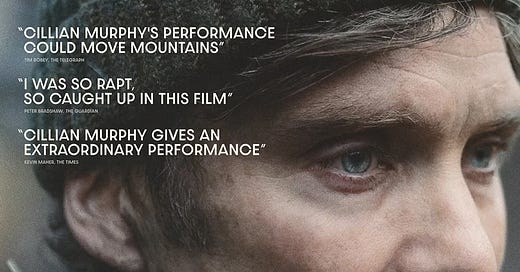176: Small things English teachers can do
Sally Rooney, Claire Keegan & Cillian Murphy, Jennifer Roberts, King Lear, Shakespeare in America, Deborah Levy and more.
Keep reading with a 7-day free trial
Subscribe to The Fortnightly from Julian Girdham to keep reading this post and get 7 days of free access to the full post archives.




